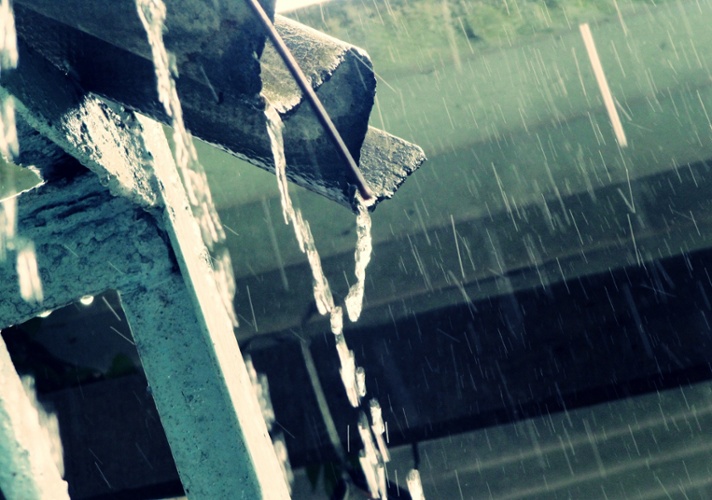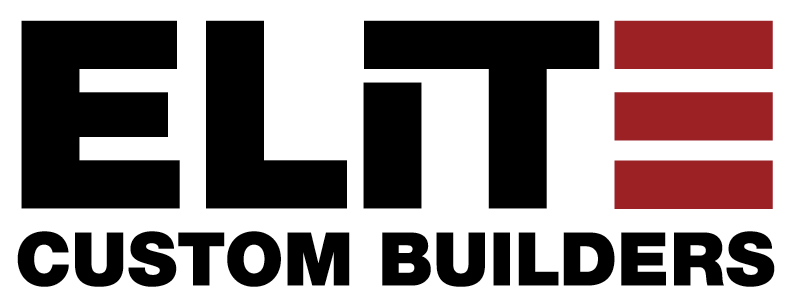The grass is starting to grow and buds are developing on trees and plants — signs of new life emerge as the weather gradually warms up. And with the signs of spring comes rain. And more rain.
Have you ever noticed puddles around the foundation of your house? Or thought that there’s just no way your gutters are going to be able to keep up with the rain? You’re not alone.
Homeowners list water damage as one of their biggest fears. The good news? If you know what to look for and maintain your home well, you can reduce the risk of severe problems. Read on for our home maintenance tips to prevent water damage and protect your home.

OUTSIDE
Preventing water issues with your home starts outside. Putting these must-do items on your calendar will remind you to do them on a regular basis.
Sitting and Running Water
When it’s raining, make sure you check for any sitting or running water around the foundation of your house. If you notice water close to the foundation, you may have an issue with the grade of the land — it should slope away from the house to avoid water next to the house.
What should you do? Take photos of the water and document it each time it rains. You’ll want to call a professional residential contractor to help you assess the best way to fix the grade so the water drains away from the house. The photos will help the contractor analyze the issue.
While this is a quick fix, it must be done right to prevent damage to your home. Given the landscape of North Central West Virginia, especially Morgantown, Fairmont and Bridgeport, this is especially important — very few homes are build on flat land.
Cleaning Gutters and Downspouts
It’s not a fun task, but it’s necessary. We recommend cleaning your gutters twice a year (or hiring somebody to clean them). It’s important to keep the gutters free of leaves and debris so that water can get to the downspouts.
Check the downspouts too — they need to be clear so that water can flow through. Make sure they point away from the home to avoid pooling water close to the house.
Disconnect Your Hose
Make sure you disconnect your hose in winter — if there’s standing water in the hose, it may freeze back into the pipe. This ice block can cause the pipes to burst, causing severe damage to your foundation, flooring and walls.
Keep Trees Trimmed
If you have trees and shrubs that grow close to your home, it’s important to keep them trimmed and maintained. We don’t recommend planting near utility pipes to prevent pipe damage from the roots — and taking out any trees that may be too big.
Trimming back trees that may drop leaves onto the roof of your house can help keep the gutters clear, reducing the time it takes to clear them.
INSIDE
The most important thing you need to know when it comes to preventing interior water damage is the location of your main water line. Know where it is and how to shut it off in case of an emergency.
Appliances and Hoses
Check your appliances on a regular basis to check for leaks — your appliances will have manufacturer’s directions that you can follow. You’ll also want to make sure you inspect the hoses for your washing machine and dishwasher. If they’re old and brittle they’ll be prone to leaks. Replacing them is cheap and can help prevent serious water problems.
Water Bill
If you auto-pay your water bill or issue payment each month without giving a second glance — stop. Your bill shouldn’t drastically increase month to month and spikes should have explanations. For example, you had house guests for an extended period, filled a kid’s paddling pool or are watering plants more. Unexplained spikes in your water bill may be indicative of a leak.
Check Your Insurance
Most policies will give coverage for sudden/accidental water damage due to rain, but not flooding (even if the flood is due to rain). Call your policy provide and ask them to clarify your water damage policy. In North Central West Virginia, we often see heavy rains and flash flooding — make sure you’re covered.
Test Your Sump Pump Regularly
Issues with a sump pump usually occur during a storm — and that’s not the time you want to learn about an issue.
We recommend finding a video on YouTube (there are plenty) to learn how to do this correctly. If you don’t already have one, installing a back-up sump pump is a good investment and is something a quality residential contractor can quickly do to keep your home safe.
Drain Snakes are Friendly
Hate snakes? It’s time to face your fear and get comfortable with a drain snake. While chemical drain cleaners are convenient, the harsh chemicals in them may cause damage to your pipes. We recommend using a drain snake to remove any large clogs — and saving chemical cleaners for the last resort.
And while we’re talking about drains — don’t pour grease down them! If it congeals it could cause a drain clog…and the snake wouldn’t help you here. Put used grease in an empty can — once it sets you can throw it away.
Elite Custom Builders | Residential Contractor
ECB work throughout North Central West Virginia. We have a combined 70+ years of experience and serve the North Central West Virginia area including:
- Morgantown
- Fairmont
- Cheat Lake
- Clarksburg
- Bridgeport
- Weston
- Elkins
- Davis
- Preston County
- Wheeling
- We also work in the Pittsburgh, Pa., area.
Have a water-based issue with your foundation or roof that you think is best left to a professional? Elite Custom Builders understand that water issues are scary — that’s why our team or professionals are prompt and courteous. Click below to schedule your project with us.

